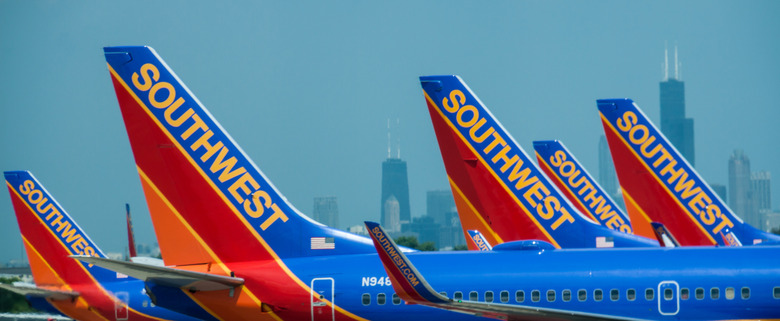Southwest Will Stop Serving Peanuts To Protect Travelers With Food Allergies
Say goodbye to peanuts if you're flying on Southwest Airlines. The company announced that starting on August 1, it will stop handing out its classic packets of peanuts to accommodate passengers with food allergies.
In a blog post entitled "We're Still Nuts ... We Just Won't Be Serving Them Anymore," Southwest's senior vice president for operations and hospitality, Steve Goldberg, wrote, "This decision wasn't made lightly, but in the interest of providing the best Hospitality and a welcoming and safe onboard environment for Customers with peanut or peanut-dust allergies, we felt it was the right thing to do." The airline will be replacing peanuts with pretzels.
This decision makes sense, considering that peanut allergies are one of the top eight most common food allergies. For those who are allergic, ingesting peanuts, or even coming in contact with them, can cause anaphylaxis.
The National Peanut Board issued a statement saying it was "disappointed" by the Dallas-based airline's decision, claiming, "It is also out of sync with the latest science, which shows education and preparation — such as allowing passengers to pre-board flights to wipe down their seats — do the most to benefit the one percent of Americans with a peanut allergy."
Food allergy experts, however, don't think this change goes far enough in protecting this vulnerable population. According to Sloane Miller, psychotherapist and specialist in food allergy management, while this may seem like a big step from Southwest's point of view, "From a food allergy perspective, it's a drop in the bucket."
While Miller considers this a "great first step potentially," she'd like to see Southwest and other airlines take their efforts on behalf of flyers with food allergies further. Her suggestions: Deep cleaning planes to remove any peanut reside and minimize flyers' future exposure, stocking epinephrine auto-injectors in flights' first aid kits and offering food allergy training for staff and gate agents.
While Southwest didn't cite any specific data, we know that food allergies are on the rise among adults, so we're likely to see them addressed more widely by the travel industry. According to Marketwatch, airlines have taken various steps to safeguard the health of passengers with food allergies, including announcing if passengers have allergies, creating allergy-buffer zones and allowing people to pre-board in order to wipe down their seats. Hopefully in the future, for those with allergies, peanuts will no longer be one of the scariest moments on an airplane.
